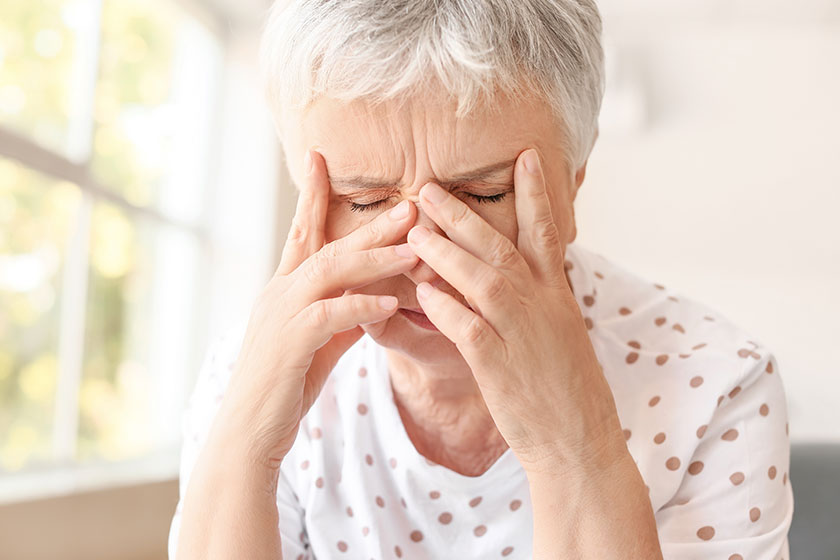Migraines in seniors can be particularly challenging, with triggers often differing from those in younger individuals. As such, understanding these triggers is essential for effective management and improving the quality of life for those affected.
What Are Migraines?
Migraines are more than just severe headaches; they are a complex neurological condition that can cause a variety of symptoms, including intense pain, nausea and sensitivity to light and sound. For older adults, migraines may present differently and can be triggered by unique factors related to age and lifestyle changes.
Common Triggers of Migraines
Identifying and managing triggers is crucial for preventing migraines in seniors. Here are some common triggers to be aware of:
-
Changes in Sleep Patterns
As people age, sleep patterns often change. Irregular sleep, whether it’s too much or too little, can be a significant trigger for migraines. Maintaining a consistent sleep schedule can help reduce the frequency and severity of migraines.
-
Dietary Factors
Certain foods and beverages can trigger migraines. Common culprits include caffeine, chocolate, aged cheeses and processed foods. Additionally, irregular eating habits and dehydration are known to contribute to migraine onset. Residents should aim to eat balanced meals at regular intervals and stay well-hydrated.
- Medication Side Effects
Many older adults take multiple medications, some of which can have side effects that trigger migraines. Blood pressure medications, hormone replacement therapies and certain types of pain relievers are often linked to increased migraine risk. It’s important to review medications with a healthcare provider to identify potential triggers.
-
Stress and Anxiety
Stress is a well-known trigger for migraines at any age. For the elderly, managing stress can be particularly important as life transitions and changes in routine can contribute to increased anxiety. Techniques such as mindfulness, meditation and gentle physical activity can help manage stress levels effectively.
-
Environmental Changes
Residents may become more sensitive to environmental factors such as bright lights, loud noises and strong odors, all of which can trigger migraines. Creating a calm, stable environment and using tools like noise-canceling headphones or light-blocking curtains can help minimize these triggers.
-
Hormonal Changes
Hormonal changes, even in older age, can influence the frequency of migraines. Post-menopausal women, in particular, may experience migraines triggered by hormonal fluctuations. Keeping track of any symptoms related to hormonal changes can help in managing migraines more effectively.
Managing Migraines Effectively
While avoiding all triggers may not be possible, there are several strategies that can help manage migraines in seniors:
-
Maintaining a Healthy Lifestyle
A healthy lifestyle is key to preventing migraines. Regular exercise, a balanced diet, adequate hydration and consistent sleep patterns can all contribute to reducing the frequency and severity of migraines. It’s important to tailor activities to your own capabilities and preferences to ensure they are sustainable and enjoyable.
-
Keeping a Migraine Diary
Tracking migraine occurrences and potential triggers can be very helpful. By keeping a detailed diary of when migraines occur, what might have triggered them and what helped to alleviate the symptoms, residents can identify patterns and take proactive steps to avoid future episodes.
-
Seeking Professional Advice
Consulting with healthcare providers is essential for effective migraine management. Professionals can offer personalized advice and treatment options, including medications and lifestyle changes that can help manage migraines more effectively.
Choose a Stress-free Living Environment Today
Understanding the triggers of migraines in seniors is crucial for effectively managing this condition and enhancing overall quality of life. By recognizing and addressing common triggers, you can take control of your migraines and lead a more comfortable and pain-free life.
Our Assisted Living community is committed to helping you live a healthier and more fulfilling lifestyle. Our community provides a supportive environment where you can explore various wellness options tailored to your needs, including personalized advice and resources for managing migraines. With a focus on creating a peaceful and nurturing space, we offer the perfect setting to minimize environmental triggers and stress.







